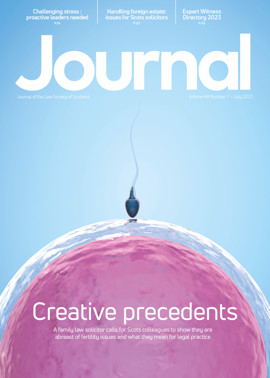Expert witness CVs – what to include?

The section on qualifications and experience in expert court reports often causes concern. While some experts worry that they don’t have enough material, others find it hard to cut material out.
Paragraph 16(h) of the Law Society of Scotland’s Code of Practice specifically states that the report should cover “a summary of the expert’s qualifications and experience”. The term “qualifications” is probably intended to be interpreted broadly, to include all relevant expertise, whether from academic qualifications or practical experience. In England & Wales, the procedural rules mandate the inclusion of qualifications.
How to approach this section of your report?
There are two principles to follow:
(i) Relevance
The court must know whether or not the expert is competent (or “qualified”) to give opinion evidence on the issue before it; this part of your report is where you demonstrate that competence and qualification.
Your focus must therefore be on the issues before the court. The court is not going to be interested in the entirety of your career to date, but only the relevant knowledge, skills, experience, training,
or education you may have which can help the court reach a decision on those issues.
(ii) Clarity of information
Comments by the President of the Family Court, Sir Andrew McFarlane, in Re C [2023] EWHC 345 (Fam) related to the issue of an unregulated psychologist giving expert evidence, but the principles can be applied across the board by all expert witnesses. Although this is an England & Wales case, the comments can usefully be applied in Scotland too.
One lesson he draws, at para 97, is: “the need for clarity as to an expert’s qualification and/or experience. The more diffuse and unstructured a CV, the less effective it is likely to be in transmitting information crisply and clearly. In this regard, lawyers, magistrates and judges are lay readers. They need to be able to see with clarity, and in short form, the underlying basis for an individual’s expertise”.
Sir Andrew identifies registered membership of the relevant regulatory or professional body as a “reliable, one-stop, method of authentication” which can be taken as “sufficient qualification to offer an opinion within that field of practice”.
That is, of course, only the starting point and specific further knowledge may additionally be necessary.
Where such additional information is needed, it should be set out “shortly and clearly”, to identify any “formal qualifications, posts held and published work” (see para 102 of the judgment).
Do:
- Focus on the issues for the court.
- Tailor your CV accordingly.
- Set out relevant formal qualifications and registration status first.
- Think about other relevant experience:
- authorship of relevant published papers or textbooks;
- relevant training or teaching which you have delivered;
- relevant studies you have carried out; and/or
- relevant panels or committees you have sat on.
- Consider including a short narrative section, describing your current practice and how frequently you deal with the same issue which is now before the court.
- Include relevant qualifications as an expert witness, e.g. the Cardiff University Bond Solon Certificate or the Aberdeen University Bond Solon Certificate, once you have attained them.
Don’t:
- Include everything you have ever done.
- Include hobbies, interests and prizes.
- Run over more than one or maximum two pages.
- Include every publication ever written.
- State how many times you have given evidence as an expert witness.
Remember, there is a difference between a court report CV and a marketing CV to send out to instructing solicitors. Your marketing CV can certainly contain everything that you would put in the court version, and the following:
- CPD in your area of expertise.
- CPD as an expert witness (particularly vital for healthcare experts in light of the requirement of the Academy of Medical Royal Colleges that those who carry out expert witness work “should” undertake expert witness training).
- How many reports you have written for court.
- How many times you have given evidence in court.
- Any positive comments from judges on your evidence.
- The balance of instructions you receive from claimants or applicants or the prosecution and from the defence or respondents.
Above all, remember that you are aiming your report CV at the judge, to assure them that you are qualified to give your opinion on the issues before them.
If in doubt, keep it short, relevant, and clear.
Perspectives
Features
Briefings
- Civil practice: Laying down the law on expenses
- Licensing: The challenges of short terms lets
- Planning: Local development planning guidance issued
- Insolvency: Bill brings in mental health moratorium
- Tax: A single tax on securities
- Immigration: Legality and the Illegal Migration Bill
- AI and in-house: where are we heading?
In practice
- Public policy highlights: July 2023
- Survey reveals growing lawyer diversity
- AGM roundup
- Risk: Letters of engagement – why they matter
- The Unloved Lawyer: "Opinions are my own"
- Diploma admissions: a thorny issue
- Ask Ash: holiday pressures
- The Expert Witness Directory 2023
- Expert witness CVs – what to include?






